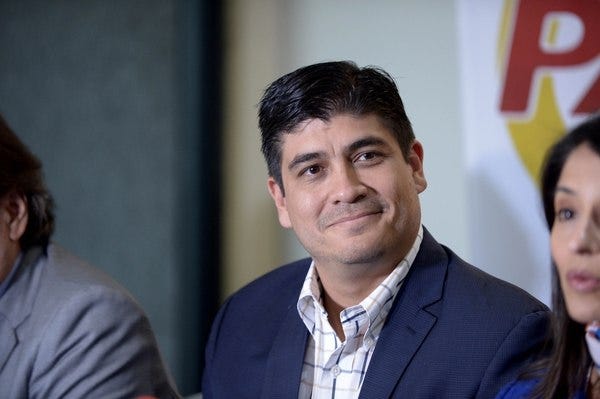Article Source: Medium
Article Link: https://medium.com/in-kind/costa-rica-becomes-the-first-nation-to-ban-fossil-fuels-a180691daae4
Sustainability has become the focus of the world over the last decade, and many countries have made great strides in their efforts to combat climate change. Japan has achieved nearly zero waste in select towns, and over 40% of Denmark’s citizens commute by bicycle to work.
Today, Costa Rica took steps to eclipsing even these amazing countries in terms of sustainability. President Carlos Alvarado announced they would be banning fossil based fuels altogether. This makes Costa Rica the first country in the world to completely decarbonize.
“Getting rid of fossil fuels is a big idea coming from a small country. This is an idea that’s starting to gain international support with the rise of new technologies,” Costa Rican economist Monica Araya said.
As unlikely as going carbon-free in today’s modern world might seem, Costa Rica already derives 99% of its energy from renewable sources. Their biggest hurdle will be in the transportation industry, where there is very little in the way of development in that sector and demand for cars is growing.

Luckily, plans are already under way to help address the issues at a cultural level. Many Costa Ricans already appreciate the benefits if renewable energy, and Hyundais (a favorite vehicle in Costa Rica) are available completely fossil fuel free. Costa Rica Limpia, an organization helping to push the decarbonization efforts, plans to have these cars available for citizens to test drive and take a look at.
President Carlos Alvarado has set a goal of decarbonizing by 2021, which will mark 200 years of independence for Costa Rica. The goal is aggressive and may not be entirely feasible, especially with Costa Rica’s current financial issues.
Costa Rica has been operating on a deficit since 2009. 22% of Costa Rica’s revenue comes from taxing the auto industry, and a large portion of that goes to protection of forests and other forms of conservation. This could result in a heavy financial loss for their already strained financial situation, but rethinking how they get their money could resolve their issues over time.

With fewer carbon emissions, they may save money in the form of reduced health care costs. Another option, which they will no doubt have to adopt at some point, is changing what they tax instead. A tax on carbonitself might help them to their goal and resolve their current financial situation as well.
Whether Costa Rica achieves its decarbonization goals on time or not, their efforts make a statement to the rest of the world. If a small country can make a huge difference to the world despite their size and lack of development, bigger countries can follow their example.
Globally, fossil fuels are the biggest threat to climate change, and a path to getting rid of them is one that all countries should make an effort to follow, regardless of size. As Araya put it in another statement, “Tackling resistance to change is one of the most important tasks we have right now.”
